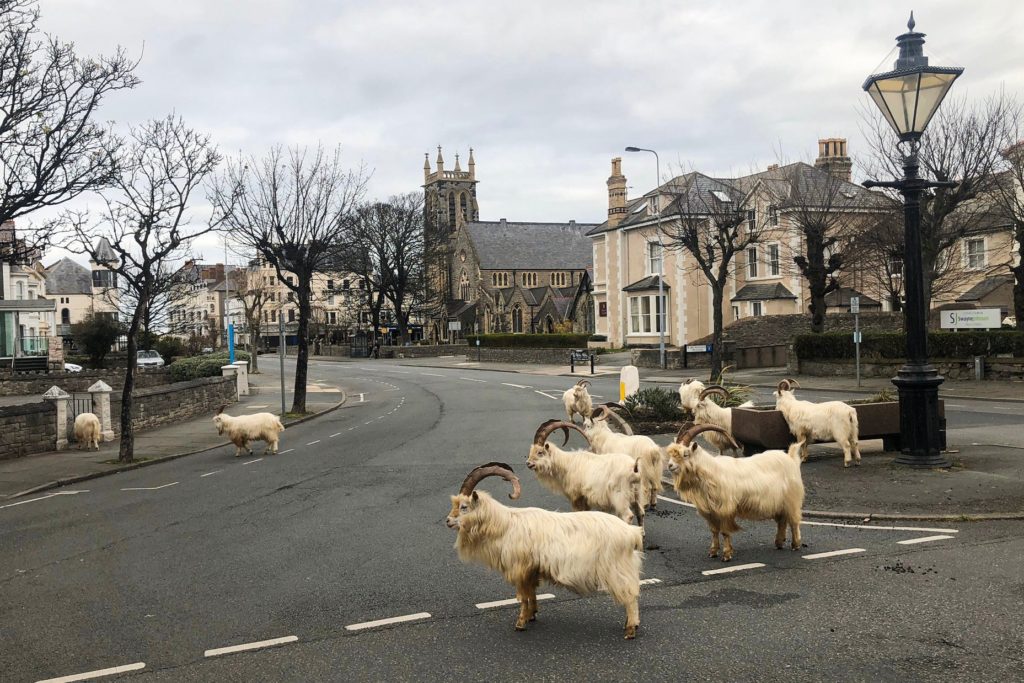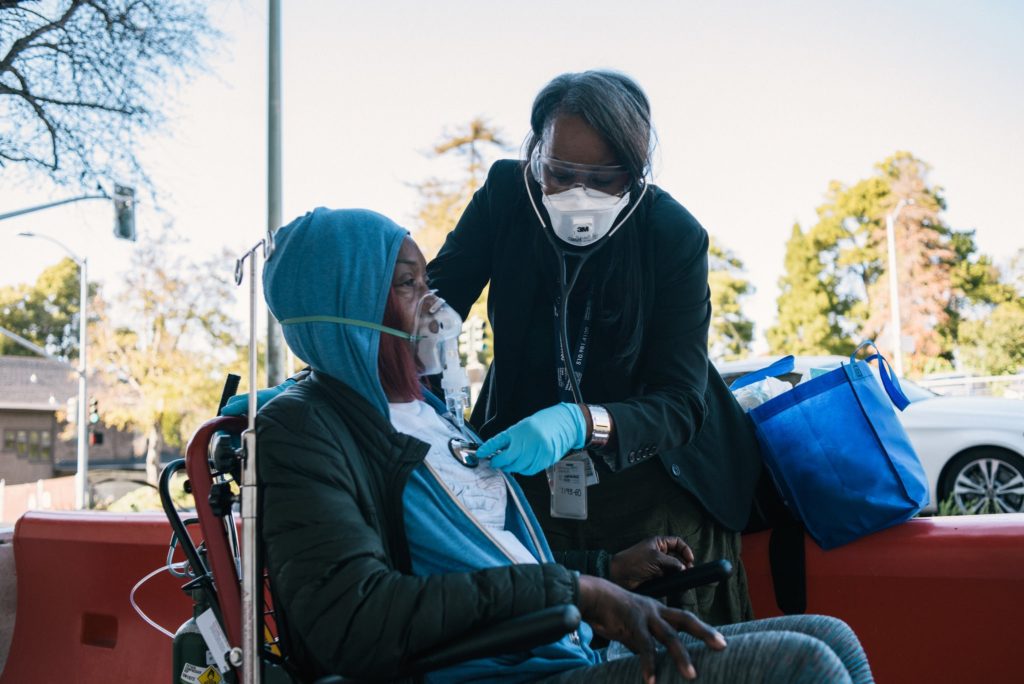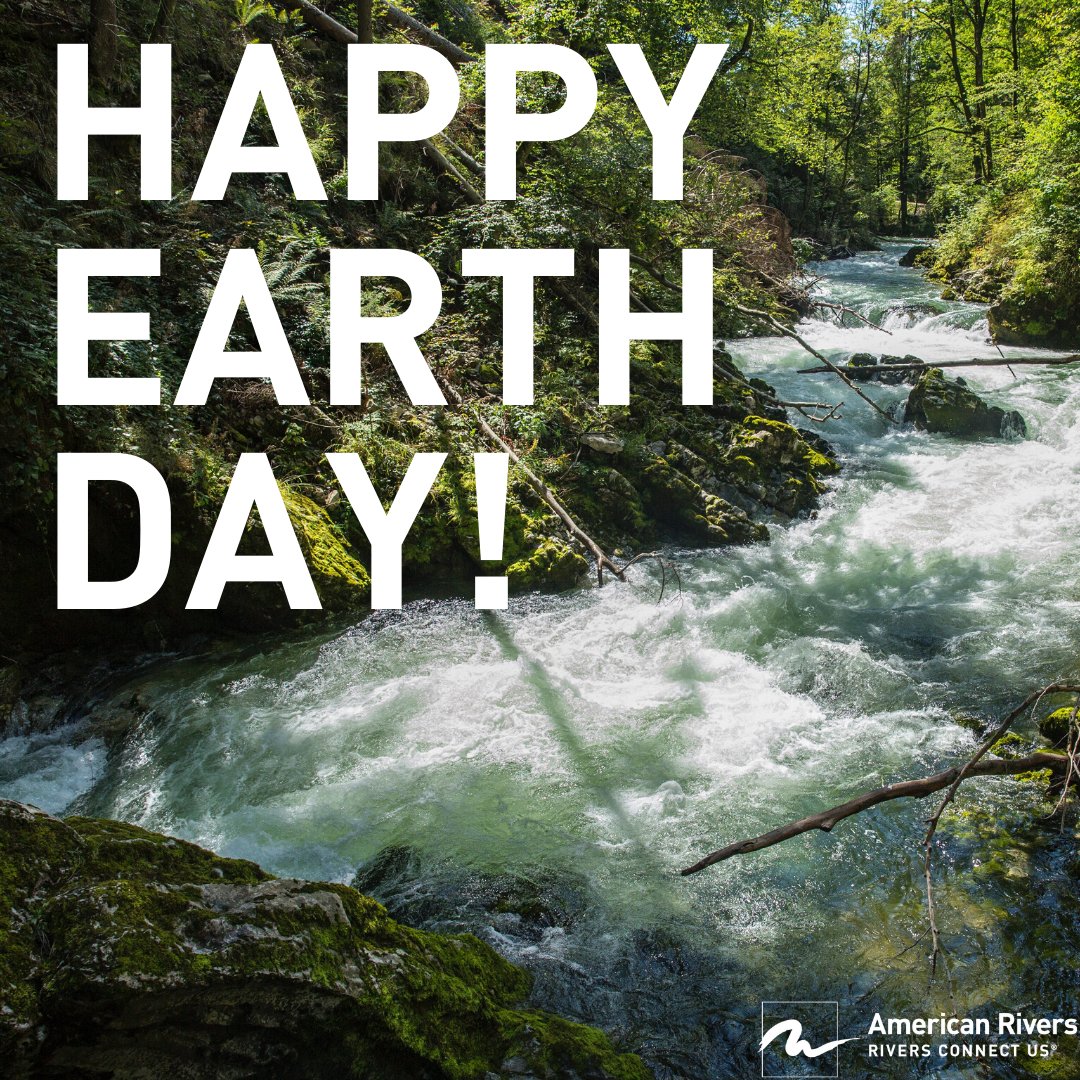This content has been archived. It may no longer be relevant
We have no choice but to live with Nature #EarthDay
While we mourn and fall sick and live in anxiety, Mother Earth is sighing a breath of relief. And fresh air. This virus may be horrible for us but everywhere else the earth is healing.
Our actions now will define our future as we navigate this unprecedented crisis. We are being forced to look at not just climate change but our very relationship to Nature as we witness in stark focus our sick and our dead.
WATER
Water is directly tied to our health, safety, and economy. Since the coronavirus, rivers are purifying after decades of pollution.
These environmental concerns tied to public safety are also highlighting economic inequality and how the privileged in society have access to basic needs, like water. Hand washing is essential for any virus and especially during this COVID-19 epidemic. Yet, we cannot do this if we don’t have clean water and clean water starts with access to clean water sources, keeping lands intact around water sources.
“In the United States, about two million people lack access to running water, indoor plumbing, or wastewater treatment. In many rural and urban areas, communities of color and historically marginalized communities are disproportionately impacted, with limited access to clean, safe and affordable water.” (American Rivers)
Black and indigenous communities in the United States, the lower castes and tribals in India, the tribals and indigenous of Brazil, the Kurds and non-majority Muslims in Iraq, whoever is in power has access to the most basic of needs. On the 50th Anniversary of Earth Day, as we face an epidemic as a world community, as we face it as a nation, let’s remember that we must shift priorities and outlooks towards each other and our environment.
AIR QUALITY
Worldwide air quality has significantly improved in recent weeks and drastically so in nine major cities across the globe according to a new report produced by Swiss company IQAir that pulled together government data from Delhi, London, Los Angeles, Milan, Mumbai, New York City, São Paulo, Seoul, Wuhan, and Rome.
Delhi saw up to a 44% reduction in PM10 air pollution levels on the first day of its restrictions, India’s Central Pollution Control Board found. People in northern India saw the Himalayas for the first time from their homes. 85 cities across India saw less air pollution in the first week of the nationwide lockdown.
WILDLIFE
With half the world’s population on lockdown, wild animals are roaming freely in cities and regions usually bustling with people. Some of this information isn’t true: dolphins and swans didn’t enter Venice canals; drunk elephants didn’t pass out in China. As this 2016 research shows, the spread of social phenomena is so powerful that it can follow the same models that trace the contagion of epidemics.
But, many other reports are true for obvious reasons. Due to overpopulation that leads to development in the natural habitat of animals, these animals are reclaiming their land as people are forced to stay inside. Coyotes walk through San Francisco, wild monkeys brawl over resources in Thailand; goats window shop in Wales; deer roam Japan; turtles that were almost extinct and other species are reproducing like never before.

ENVIRONMENTAL LAWS & POLICIES
Instead, Trump has done the opposite and used the coronavirus as an excuse to continue the deregulation of environment he began since taking office.
The Environmental Protection Agency (EPA) issued a sweeping suspension of its enforcement of environmental laws Thursday, telling companies they would not need to meet environmental standards during the coronavirus outbreak. This is a so-called temporary policy, with no end date.
Recently, right before the epidemic hit the United States, Trump challenged EPA water rules, created a loophole to allow pipelines to avoid environmental review, and axed Obama’s signature climate change policy, the Clean Power Plan.
Overall, a New York Times analysis has found that the Trump administration has rolled back nearly 100 environmental rules and regulations. Its actions have made it easier to drill in wildlife refuges, slashed regulations meant to combat overfishing, and narrowed safety assessment requirements for potentially toxic chemicals.
In the 24 hours since the EPA freeze:
- a private company is set to take over inspection duties at a Tyson Foods beef slaughterhouse
- Obama-era rules have been rolled back raising fuel-economy standards on new vehicles aimed directly at California
- review has begun of a proposed 211-mile road that would cut through a portion of Alaska’s Gates of the Arctic National Park and Preserve and open up an area rich in copper, zinc and other minerals
These environmental deregulation has nothing to do with the coronavirus or concern for public safety. It has to do with Trump and his administration’s rulebook of benefitting corporations and rolling back any Obama-era policies or laws. As of December 2019, Trump had set back and deregulated over 95 environmental laws and policies.
GOING FORWARD
Here’s the reality. We have been brought to our knees by the coronavirus, and the worst has yet to hit, economically and in terms of lives lost. Mother Nature could care less if we made it through this. We as a species are responsible for our own survival. We must learn. And the moral of the story is that we must live alongside the environment and not treat it as a commodity.
The current administration does not see this message as plain as it is. If we do not shift directions now, what is already a tragedy of epic proportions will signal the decline of our way of life as those nations who will figure out how to live more with the environment are healthier, more resource-laden, and prosper economically and as a society as a result.
Congresswoman Deb Haaland (D-N.M.), vice chair of the House Natural Resources Committee, outlined three major laws she’s authored in an op-ed today:
- the 30 by 30 Resolution to Save Nature – it sets a national goal of conserving at least 30 percent of the land and 30 percent of the ocean within the United States by 2030
- the Climate Stewardship Act
- the 100% Clean Economy Act, which sets a national goal of a 100 percent clean economy no later than 2050
As American Rivers states, “we must invest in clean water and healthy rivers to improve public health and our economy.” How can we wash our hands for up to 20 seconds if millions of Americans don’t even access to running, clean water?
The National Oceanic and Atmospheric Administration is predicting major to moderate flooding in 23 states this spring. If a flood threatens a community during a coronavirus “stay at home” order, where will people turn for safety and shelter? With scarce resources and supplies, how will communities, states and the federal government respond to both flooding and the epidemic?
American Rivers recommends:
Congress must act to prioritize healthy rivers and clean, safe, affordable water for all. This should include, for the duration of the pandemic emergency, a ban on water shut-offs nationwide and restoration of water services for anyone without access.
Congress must also increase water infrastructure funding to ensure clean water and sanitation for communities most in need, and increase funding for innovative, cost-effective solutions that strengthen communities in the face of flooding and other impacts of climate change.
INTERSECTIONALITY
These inequities have been fatally reflected in the loss of black and brown lives as the coronavirus rages on. The New York Times predictions have come true: “the vulnerabilities of resource-strapped minorities…[has had] devastating consequences.”

Recent reports show black people comprise 32% of Louisiana’s population—but a startling 70% of the coronavirus deaths. In its first release of racial data, New York City reported that Hispanics died from COVID-19 at a rate of 22 per 100,000 and black people died at a rate of 20 per 100,000—double the rate of white people.
Worst hit has been Chicago where black Chicago’s African Americans are dying at a rate nearly six times greater than white residents. About 68% of the city’s deaths have involved African Americans, who make up only about 30% of Chicago’s total population, according to the Chicago Department of Public Health.
And that’s not even the full picture. Until last week, the Centers for Disease Control and Prevention (CDC) and most local health departments weren’t releasing data on race. Many still are not.
Senator Elizabeth Warren ran the first intersectionality focused campaign and specifically mentioned the toll environmental issues have on black communities. As Teen Vogue reported:
Elizabeth Warren is paying attention, and it shows in the environmental justice plan she released this week. Her plan is informed by the 17 Principles of Environmental Justice, an equity-based framework written by activists of color in 1991 that no presidential administration has acted on to date.
Nelini Stamp, Working Families Party director of strategy and partnerships (Teen Vogue)
Senator Warren has been one of the Democrat’s primary architects of the stimulus package and roadmap out of this pandemic crisis — and she continues to highlight intersectionality factoring in this inequality.
In her recent New York Times April 8, 2020 op-ed outlining her plan forward to tackle this crisis, she pointed out that intersectionality is key to this plan: “Early data shows people of color are infected and dying at disproportionately high rates.”
We are not the owners of Nature but part of it. We cannot even thrive or survive if we do not acknowledge how we are interconnected. This is not a clarion call to return to some pure state or start hugging trees. It is a matter of survival. Even from a purely selfish standpoint, if a significant portion of the population gets a disease due to lack of access, they will spread the disease to everyone else.
In other words, Mama has had just about enough. She tried to warn us. Fires, volcanoes, you name it, we lived through it as climate change red flags were ignored. Finally, she’d had enough of the New Age, gentler approach and went fire-and-brimstone, plagues-and-scorpions because she did not have any more time for our tomfoolery. It’s time we listen.
